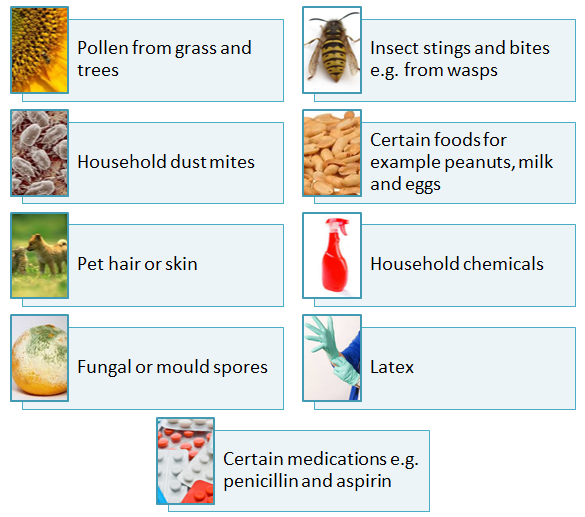As described, an allergy develops in response to an allergen, when the immune system feels it is under threat and protects the body with antibodies as it would if there was an infection.
The antibody produced is called immunoglobulin E (IgE) and when released it causes the body to release chemicals such as histamine which in turn cause the symptoms of an allergic reaction. These chemicals cause the surrounding tissues to swell, itch and become inflamed. In the nose they trigger the production of excess mucus.
There are thousands of allergens which can cause a reaction but some of the most common are:

Many people suffer from allergies that are triggered by airborne allergens such as:
- Allergic rhinitis
- Asthma
- Atopic eczema
An allergy can develop at any point in someone’s life, but allergies often run in families and some people are genetically predisposed. Where a patient is predisposed the allergy will often start in childhood and is known as atopy or atopic. The most common atopic allergies are eczema, asthma and allergic rhinitis, and if someone develops one of the atopic conditions they are likely to develop others.
A patient can also develop sensitivity to an allergen which leads to an allergy; however they may not be predisposed and are unlikely to develop other allergies. A common example is when an adult develops hay fever suddenly without having any previous symptoms.
Environmental factors can also increase the chance of a child developing an atopic allergy including:
- Growing up in a household with smokers
- Exposure to dust mites
- Exposure to mould spores
- Exposure to pets
- Using antibiotics
